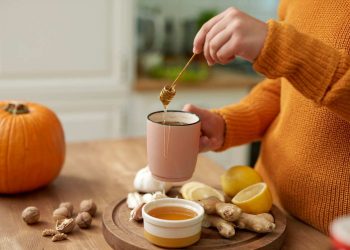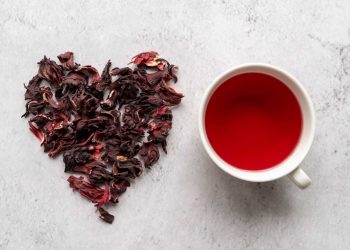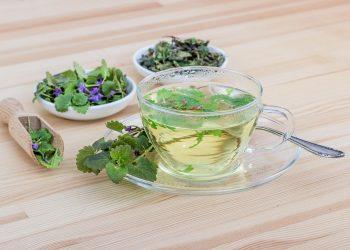Herbal remedies are not just an old wives’ tale; they’re powerful allies for your health. In a time when we seek natural options, having herbal remedies in your medicine cabinet can make a world of difference. These plants have been used for centuries, and today, they’re gaining renewed attention for their therapeutic benefits.
Understanding herbal remedies is crucial. They provide natural alternatives to pharmaceuticals, often with fewer side effects. You deserve to know how these remedies can enhance your well-being and tackle common ailments. Let’s dive into the ten herbal remedies you absolutely need in your medicine cabinet.
Contents
- 1. Echinacea: Your Immune Booster
- 2. Peppermint: The Soothing Stomach Savior
- 3. Ginger: Nature’s Anti-Nausea Wonder
- 4. Turmeric: The Golden Anti-Inflammatory
- 5. Lavender: The Calming Essential
- 6. Chamomile: Your Sleep Supporter
- 7. Garlic: The Heart’s Best Friend
- 8. Aloe Vera: The Skin Healer
- 9. Milk Thistle: The Liver Protector
- 10. St. John’s Wort: The Mood Enhancer
- Integrating Herbal Remedies into Your Life
- Bottom Line
- FAQs
1. Echinacea: Your Immune Booster
Echinacea is your go-to when you feel that tickle in your throat or the onset of a cold. This vibrant purple flower has been shown to enhance your immune response. Studies reveal that it may reduce the duration and severity of colds.
- How to Use: Opt for Echinacea tea or capsules. Start taking it at the first sign of illness.
- Benefits: It not only helps fight off colds but also reduces inflammation.
For more on Echinacea, check out the National Center for Complementary and Integrative Health.
2. Peppermint: The Soothing Stomach Savior
Peppermint is more than just a fresh flavor; it’s a powerful digestive aid. If you’ve ever experienced bloating or an upset stomach, peppermint is your friend.
- How to Use: Sip on peppermint tea or use peppermint oil in a diffuser.
- Benefits: It relaxes your gastrointestinal tract, alleviating discomfort.
3. Ginger: Nature’s Anti-Nausea Wonder
Ginger is a culinary delight and a potent remedy. Whether you’re battling motion sickness or morning nausea, ginger is here for you.
- How to Use: Fresh ginger tea or ginger capsules work well. You can even enjoy ginger ale, just check for real ginger!
- Benefits: It’s been shown to reduce nausea and vomiting effectively.
4. Turmeric: The Golden Anti-Inflammatory
Turmeric isn’t just a spice; it’s a powerhouse of anti-inflammatory properties thanks to curcumin, its active compound. If you’re dealing with joint pain or chronic inflammation, turmeric should be in your cabinet.
- How to Use: Mix turmeric powder into smoothies or soups, or take it in supplement form.
- Benefits: It helps reduce pain and inflammation, promoting overall health.
Explore more about turmeric at Healthline.
5. Lavender: The Calming Essential
Lavender is a beloved herb with a soothing aroma that calms the mind and body. If stress or anxiety frequently visits you, lavender is a must-have.
- How to Use: Use lavender essential oil in a diffuser, or enjoy lavender tea before bed.
- Benefits: It promotes relaxation, improves sleep quality, and eases anxiety.
6. Chamomile: Your Sleep Supporter
Chamomile is another herbal remedy that’s perfect for restless nights. This delicate flower has been used for centuries to promote relaxation and sleep.
- How to Use: Brew chamomile tea an hour before bedtime.
- Benefits: It helps reduce insomnia and promotes a sense of calm.
7. Garlic: The Heart’s Best Friend
Garlic is not just a flavor enhancer; it’s a natural remedy for heart health. Packed with antioxidants, it supports cardiovascular function and can help lower blood pressure.
- How to Use: Incorporate fresh garlic into your meals or take garlic supplements.
- Benefits: Regular consumption can lower cholesterol and support heart health.
For more insights on garlic, visit WebMD.
8. Aloe Vera: The Skin Healer
Aloe vera is a versatile herb that’s often associated with sunburn relief. However, its benefits extend far beyond that. It’s a powerful moisturizer and has anti-inflammatory properties.
- How to Use: Apply aloe vera gel directly to cuts, burns, or dry skin.
- Benefits: It soothes irritation and promotes healing.
9. Milk Thistle: The Liver Protector
Milk thistle is a lesser-known gem that works wonders for your liver. If you’re looking to detoxify or support liver health, this herb is essential.
- How to Use: Milk thistle supplements are widely available.
- Benefits: It helps regenerate liver cells and protects against toxins.
10. St. John’s Wort: The Mood Enhancer
St. John’s Wort is a well-researched herb for mood support. If you’re feeling down or dealing with mild depression, it may help lift your spirits.
- How to Use: Take it in capsule form or as a tea.
- Benefits: It may improve mood and reduce anxiety symptoms.
For a deeper understanding of St. John’s Wort, refer to Mayo Clinic.
Integrating Herbal Remedies into Your Life
Now that you know these ten herbal remedies you need in your medicine cabinet, how do you incorporate them into your daily routine?
- Start Small: Introduce one or two herbs at a time. Monitor how your body responds.
- Consult Professionals: Always consult a healthcare provider, especially if you’re on medication or have underlying health conditions.
- Quality Matters: Choose high-quality herbal products from reputable sources. Look for certifications and third-party testing.
Bottom Line
Herbal remedies are not just an alternative; they’re a way to empower yourself and take charge of your health. From boosting your immune system to calming your mind, these herbs can be invaluable allies.
Don’t wait—stock your medicine cabinet with these powerful herbs and experience the benefits for yourself. Your body will thank you!
FAQs
1. Are herbal remedies safe?
While many herbal remedies are safe, it’s essential to consult your healthcare provider, especially if you’re pregnant or on medications.
2. How can I ensure the quality of herbal products?
Look for products that are third-party tested and certified for quality. Brands with good reputations are usually a safe bet.
3. Can I use herbal remedies alongside prescription medications?
Always consult your doctor before combining herbal remedies with prescription medications to avoid interactions.
Embrace the power of nature. You deserve a healthier, happier life, and these herbal remedies can help you achieve just that!
Get Your FREE Natural Health Guide!
Subscribe now and receive our exclusive ebook packed with natural health tips, practical wellness advice, and easy lifestyle changes — delivered straight to your inbox.














